WITH the death of the Queen and arrival of a new King in Britain, a return to political stalemate in Northern Ireland and a war erupting in Europe that no-one could have predicted, it’s fair to say 2022 has been a tumultuous year.
Much has happened over the past 12 months and as the year draws to a close there is much to reflect on.
Here are some of the headline-grabbing events that shaped 2022…
War in Ukraine
When the New Year rang in in January, countries the world over were optimistic for a brighter future following the global pandemic which had dominated the previous years.
No-one was expecting the world to be thrown into turmoil again just a month later, when Russian President Vladimir Putin invaded Ukraine.
Shock rippled across Europe and further afield in February when the Russian leader announced his intention to attack his neighbouring country.
On Thursday, February 24, President Putin launched a full-scale military invasion of Ukraine, forcing Ukrainian President Volodymyr Zelensky to impose martial law across the nation.
More than one million people fled the country in the weeks that followed, while others holed up in underground bunkers, as fierce fighting and heavy bombardments by the Russians got underway.
Sadly, the conflict continues 10 months later, and the people of Ukraine remain determined to fight for the survival of their nation.
But theirs is a country now decimated by war and reliant on continuing support from their international allies to keep fighting.
Last month, Ukraine's First Lady, Olena Zelenska was in Westminster, in London.
There she urged MPs to "unite the world community" and help end Ukraine's conflict with Russia.
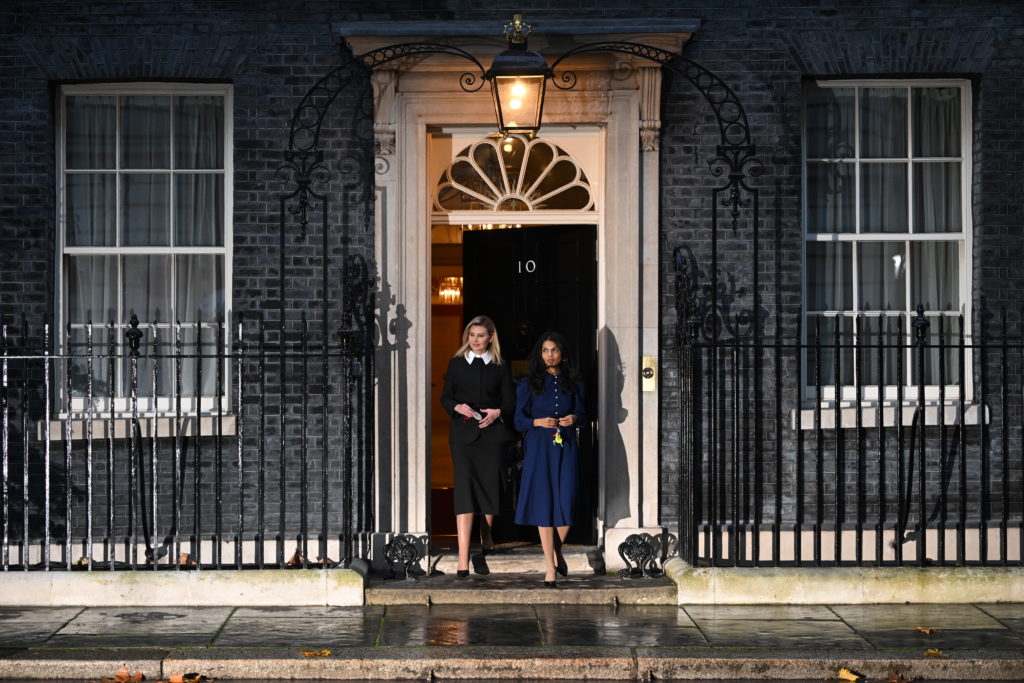 Ukraine's First Lady Olena Zelenska and Akshata Murthy, wife of Prime Minister Rishi Sunak, pictured after a meeting at Downing Street on November 28, 2022 in London, England
Ukraine's First Lady Olena Zelenska and Akshata Murthy, wife of Prime Minister Rishi Sunak, pictured after a meeting at Downing Street on November 28, 2022 in London, EnglandHistoric win for Sinn Féin
In May the Northern Ireland Assembly election results saw Sinn Féin become the largest party.
That unprecedented outcome marked the first time an Irish nationalist party had won the most seats in an Assembly election in the history of Northern Ireland.
It also means Sinn Féin Vice President Michelle O’Neill, the party’s leader in the North, will take up the position of First Minister of Northern Ireland, once the Northern Ireland Executive, which is currently out of action while the DUP refuses to return to power-sharing, resumes service.
There has been no Executive in place to lead the region since February, with the DUP claiming it will not return to government until its demands over Brexit concerns are met.
Despite the political stalemate that the North finds itself in once again, as First Minister in waiting, the enormity of her achievement this year is not lost on O’Neill, a mother-of-two, who hails from Co. Tyrone.
Indeed, she believes Sinn Féin’s success is a mark of what’s to come “at a time of major change right across our entire island”.
“That change was demonstrated most loudly, when the people of the North voted in huge numbers in the Assembly election,” she explains.
“It really was a defining moment,” she adds.
“For the first time, the balance of power at Stormont shifted, and Sinn Féin emerged as the largest party, topping the poll with 27 seats.
“The electorate overwhelmingly endorsed our message of hope, optimism and of working in partnership with others to get things done.”
 Sinn Féin recorded an historic victory this year
Sinn Féin recorded an historic victory this yearCommunity mourns tragic pensioner
There was shock and horror among the Irish community in Britain when pensioner Thomas O’Halloran was killed near his home.
The 87-year-old was on his mobility scooter when he was attacked near his home in Greenford, West London on August 16.
The Ennistymon native's funeral took place at the Our Lady of the Visitation church in Greenford, West London on Saturday, October 1.
Irish music played as Mr O'Halloran's coffin was borne into the church, draped in the flag of his native Co. Clare.
Those in attendance heard how Mr O'Halloran, the eldest of 14 children, moved to London at the age of 17.
The talented musician worked at various jobs in the capital, including as a maintenance worker, and was adept at whatever he turned his hand to.
Leading the funeral, Fr Liam O'Donnell paid tribute to the generosity of Mr O'Halloran, who often busked to collect money for good causes.
Mr O'Halloran was laid to rest at Greenford Park Cemetery before a celebration of his life took place at the Tir Chonaill Gaels GAA clubhouse.
Lee Byer, 44, of Allenby Avenue UB12, has been charged with the murder of Mr O'Halloran.
Once a plea hearing takes place this month, a court trial or hearing is expecting to get underway in May 2023.
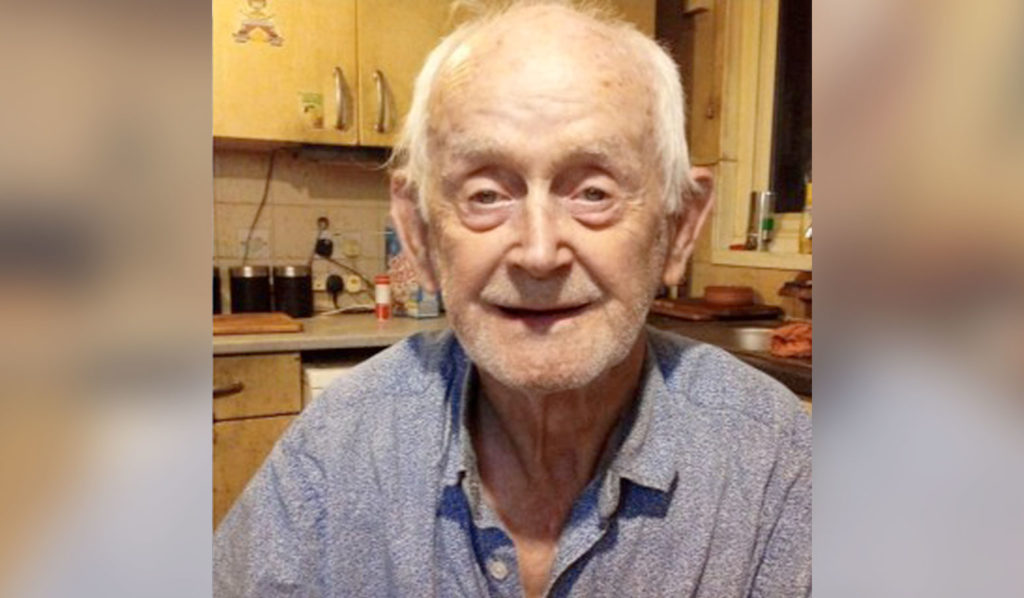 Tragic pensioner Thomas O'Halloran (Image: Met Police)
Tragic pensioner Thomas O'Halloran (Image: Met Police)Death of Queen Elizabeth
Ireland’s President Michael D Higgins was one of the first international leaders to pay tribute following the death of Queen Elizabeth II.
The monarch was 96 when she died at Balmoral Castle in Scotland on September 8.
The Queen, whose 70-year reign makes her Britain’s longest serving monarch, had suffered with deteriorating health prior to her death.
Shortly after her children and grandchildren arrived at her bedside a statement was made by Buckingham Palace confirming her death, which automatically saw her son Charles become King Charles III.
President Higgins, who had met on several occasions during her visits to Ireland and his own state visit to Britain, paid tribute, saying: “It is with profound regret and a deep personal sadness that I have learnt of the passing of Her Majesty Queen Elizabeth II.
“On behalf of the people of Ireland, may I express my heartfelt sympathy to His Majesty King Charles and to the Royal Family on their very great personal loss.”
A period of national mourning followed the Queen’s death, which saw some 250,000 people pay their respects by filing past her coffin as she lay in state in Westminster Hall.
Among them were President Higgins and Taoiseach Micheál Martin, who also signed a Book of Condolence at the UK Foreign and Commonwealth Office.
The pair also attended the Queen’s state funeral, which took place on September 19.
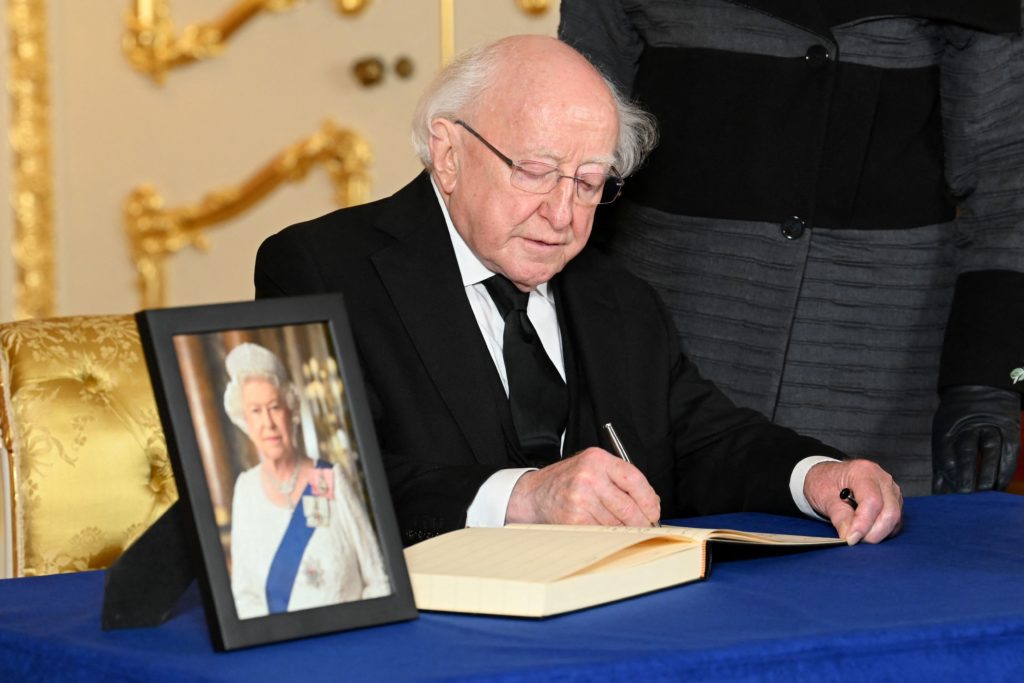 Irish President Michael D Higgins signs a book of condolence at Lancaster House in London on September 18, 2022 following the death of Queen Elizabeth II on September 8
Irish President Michael D Higgins signs a book of condolence at Lancaster House in London on September 18, 2022 following the death of Queen Elizabeth II on September 8Petrol station explosion
The Taoiseach and President were among the first to extend their sympathies when ten people were killed following an explosion at a petrol station in Donegal.
The devastating incident at the Applegtreen Service Station in Creeslough happened on October 7.
Ten people, including three children, were killed in the blast.
They were Catherine O'Donnell, 39, and her 13-year-old son James Monaghan; Robert Garwe, 50, and his five-year-old daughter Shauna Flanagan Garwe; 14-year-old Leona Harper; Jessica Gallagher, 24; James O'Flaherty, 48; Martin McGill, 49; Martina Martin, 49, and 59-year-old Hugh Kelly.
Taoiseach Micheál Martin issued a statement following the tragedy saying: "People across this island will be numbed by the same sense of shock and utter devastation as the people of Creeslough at this tragic loss of life."
King Charles also paid tribute to those who had lost their lives in the blast.
In a message to President Michael D Higgins, he said: "My wife and I were filled with immense sadness when we heard of the appallingly tragic explosion at Creeslough, County Donegal.
"However inadequate this may be under such shattering circumstances, we wanted you to know that our most heartfelt sympathy and deepest condolences are with those families and friends who have lost their loves ones in this devastating tragedy, together with yourself and the people of Ireland."
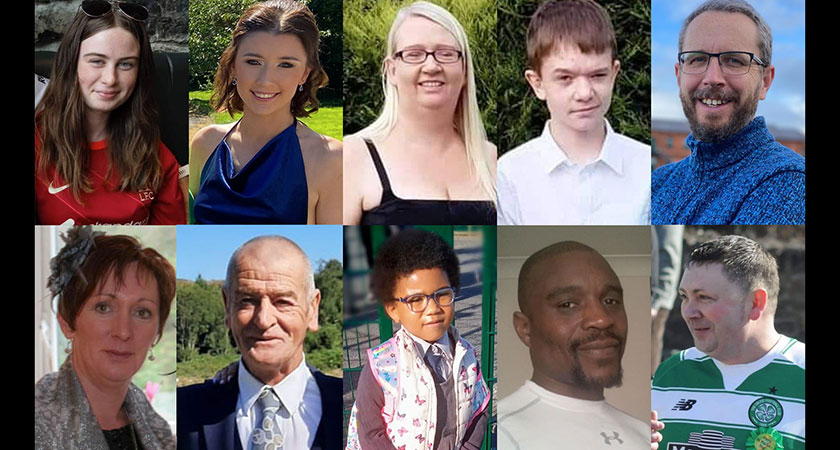 The Creeslough tragedy victims
The Creeslough tragedy victimsProsecution of Soldier F resumes
The prosecution of a soldier for the murder of two men on Bloody Sunday resumed in September.
Proceedings against the man, known as Solder F, were initially dropped in July 2021.
However, the Public Prosecution Service (PPS) of Northern Ireland confirmed in September that it intends to reactivate proceedings after a fresh review of the case.
Soldier F is being prosecuted for the murders of James Wray, 22, and William McKinney, 28, on January 30, 1972 at the height of the Troubles in Northern Ireland.
The men were two of 13 civilians shot dead during a civil rights march in Derry, while the death of a 14th man several months later was attributed to the gunshot injuries he sustained that day.
Soldier F is also facing five charges of attempted murder in relation to Joseph Friel, Michael Quinn, Joe Mahon, Patrick O'Donnell and a fifth unknown person.
"The PPS has written to representatives of the families and victims directly involved in the prosecution of Soldier F to confirm this decision," said Deputy Director of Public Prosecutions Michael Agnew.
"I am very conscious of the upset caused to the Bloody Sunday families by the PPS decision to withdraw proceedings against Soldier F last year,” he added.
“The PPS is committed to progressing court proceedings against Soldier F without any further delay."
The Soldier F prosecution is now listed for a committal hearing before a district judge at Derry Magistrates Court in January.
The proceedings are due to last a number of weeks across January and February 2023, but will not sit on the anniversary of the killings in Derry on January 30, it has been confirmed.
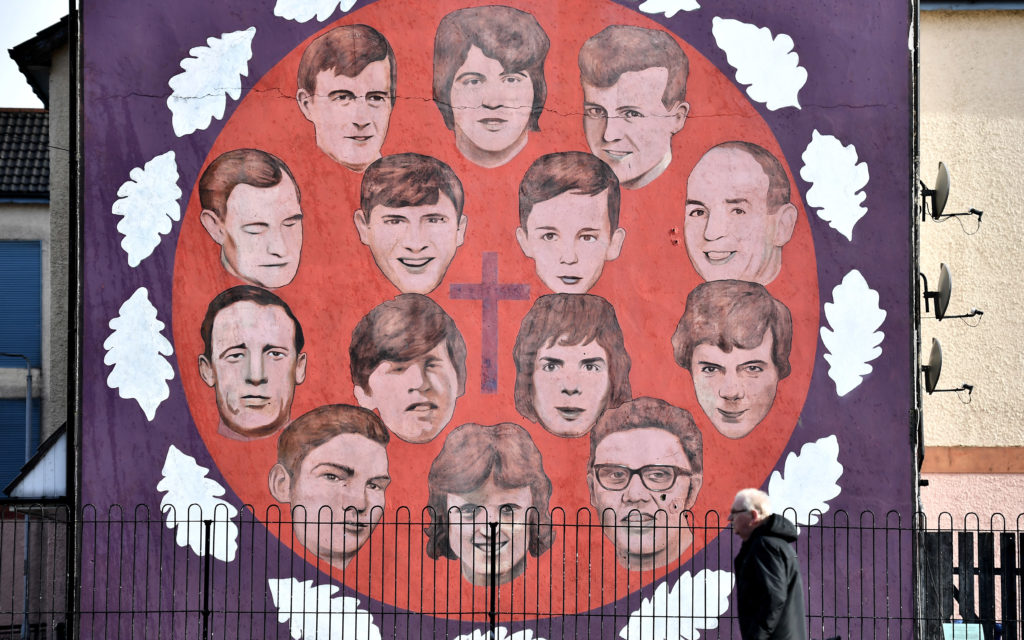 A Derry mural depicting the 14 Bloody Sunday victims - 'Soldier F' is the only person to been charged in connection with the killings
A Derry mural depicting the 14 Bloody Sunday victims - 'Soldier F' is the only person to been charged in connection with the killingsCatholics outnumber Protestants in North
The number of Catholics living in Northern Ireland outnumber that of Protestants for the first time, it was revealed this year.
The census 2021 figures, which were shared in September, showed 45.7 per cent of the population of Northern Ireland are now Catholic, compared to 43.5 per cent who are Protestant.
The previous census, which took place in 2011, showed Protestants outnumbered Catholics by 48 per cent to 45 per cent, which saw the total number of Protestants fall below 50 per cent for the first time.
The state of Northern Ireland was established in 1921.
The significance of the 2021 census results, which were collected 100 years later, was not lost on political parties in the North.
Commenting on the results, SDLP Leader Colum Eastwood MP said: “As we have built a more inclusive and diverse society, we have together shattered the bonds of an oppressive state which engrained discrimination against a Catholic minority in its every outworking for far too long.
"We are never going back to state sponsored discrimination against any religious minority. I hope that all those who lived through decades of discrimination and who experienced the sharp end of that oppressive state are able to breathe a sigh of relief today."
Ciara Mageean breaks O’Sullivan record
Legendary Irish athlete Sonia O'Sullivan was the first to praise Ciara Mageean when the Co. Down runner set a new Irish 1500m record earlier this year.
Mageean shocked Britain's Laura Muir at the Diamond League in Brussels in September to finish first in the 1500m with a time of 3:56.63.
Not only did the 30-year-old set a new personal best, but she also set a new national record, eclipsing O'Sullivan's time of 3:58.85 from the Herculis meet in Monaco in July 1995.
O'Sullivan was present at the Allianz Memorial Van Damme meet at the King Baudouin Stadium to see Mageean break her record.
Afterwards, the Cobh native paid tribute to Mageean on Twitter for her fearless performance.
"Congratulations @ciaramageean winning Brussels Diamond league 1500m and [setting a] new Irish record; old record nearly as old as Ciara is young," she wrote.
"Great to be in the stand to witness such a great race by Ciara who has had a great season and was not afraid to lose tonight."
Speaking after her win, Mageean said: “Before this race I had never ran under four minutes, so to run a time of 3:56.63 is something that blows my mind.
"People say that in athletics and in life every so often you have a day where you are completely in the zone.
“I can only say that this is how I felt today: I was in the zone and it felt like I was running on clouds.”
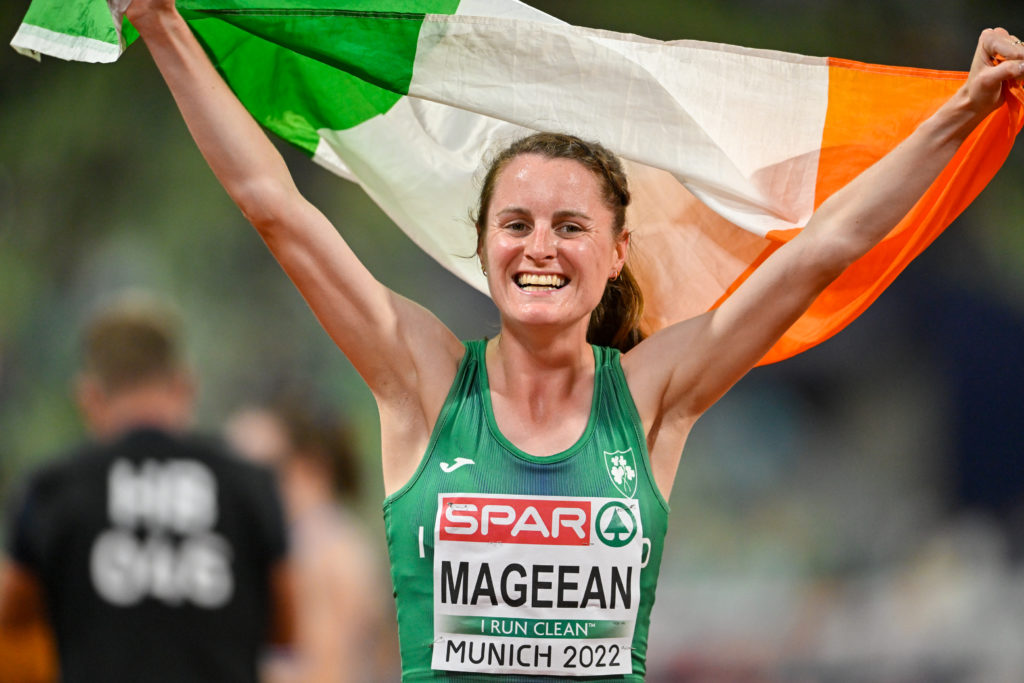 Ciara Mageean celebrates her win
Ciara Mageean celebrates her winFull access to adoption and birth records
October saw the launch of new services allowing full access to birth records for everyone who has been adopted in Ireland.
Established under the Birth Information and Tracing Act 2022 the new laws provide full and clear right of access to birth certificate, birth and early life information for all persons who were adopted or boarded out and those who were the subjects of illegal birth registrations.
The Act, which was signed into law earlier this year, additionally allows for access to information by a child of a relevant person where their parent has died, and for access by the next of kin of a child who died in an institution.
From October 3, the new law also established a tracing service which will enable affected persons and those connected to them to actively seek contact or share information.
The Act further introduced a wide range of new bespoke measures to address issues arising for people affected by illegal birth registration.
Applications can now be made for access to birth, early life, care and medical information and for tracing services via the dedicated website www.birthinfo.ie.
Nation mourns Vicky Phelan
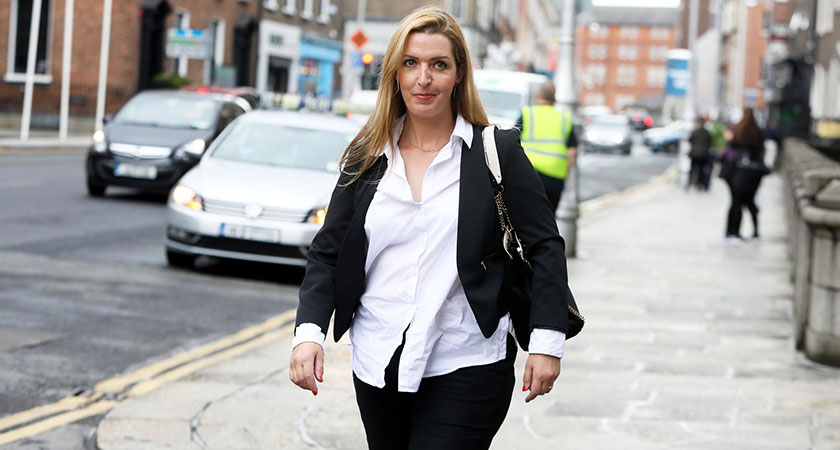 Vicky Phelan pictured in 2018 on her way to a meeting with then Taoiseach Leo Varadkar
Vicky Phelan pictured in 2018 on her way to a meeting with then Taoiseach Leo VaradkarIreland went into mourning last month following the death of trailblazing cervical cancer campaigner Vicky Phelan.
The mother-of-two, 48, who exposed Ireland’s cervical cancer screening scandal, died on November 14.
She became a national hero after leading a campaign which revealed the negligence and mishandling of cervical cancer screening by Ireland’s HSE.
She herself was initially given the cancer all-clear in 2011 due to an inaccurate smear reading before being diagnosed with the disease three years later.
Her campaigning led to a state apology and a €2.5m settlement with Clinical Pathology Laboratories.
Refusing to sign a non-disclosure agreement, her case helped expose hundreds of instances of women who could have benefitted from early intervention treatment, prompting a government investigation into the controversy.
The Kilkenny native’s death last month prompted tributes from across Ireland and garnered headlines the world over.
Phelan was laid to rest in private, but her family held a public celebration of her life at the Church of the Assumption in Mooncoin, Co. Kilkenny.
Friends and family spoke at the event, with her sister Lyndsey describing her as “one of the bravest women in Ireland”.
There were performances from the Mount Sion Choir, Niall Breslin and Vicky's favourite band The Gathering to reflect her love of music, as well as a range of poignant gifts presented at the altar to symbolise her life.

